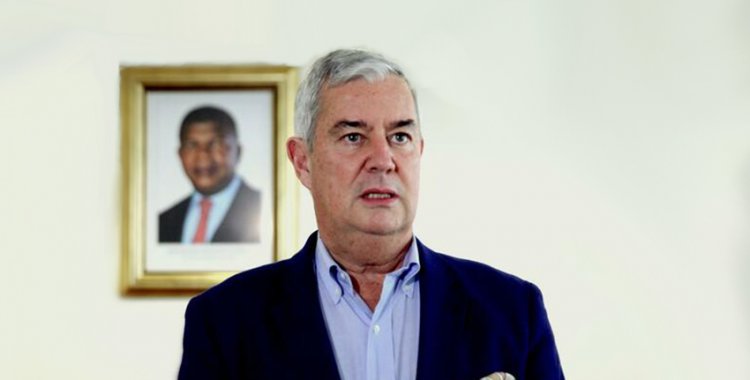Many Portuguese working in Angola and travelling to Portugal in March were unable to return to Luanda after the African country closed its airspace on 20 March to contain the spread of the covid-19 pandemic.
"We have been aware of a growing concern of Portuguese companies and entrepreneurs in these last three, almost four months of a state of emergency and calamity," said Pedro Pessoa e Costa to Lusa, noting that "for many of those who left and want to return, it is a question of the sustainability of the business itself.
For the diplomat, "exceptional times also require exceptional assessments" and he goes on to say that this is "the message" that he has been transmitting to the angolan authorities.
"What I would like is for it to be understood that there are cases where companies need specialised technicians who are in Portugal," he said, giving as an example construction companies that have works considered to be a priority in their portfolio and that need specialised technicians to move forward.
"If they're not here, the work doesn't go ahead and that's complicated for the company itself", he stressed.
In addition, there is the possibility of "business breakdowns" due to the absence of managers with negative impacts on the angolan economy.
The feedback that "I have received in some situations is complicated, they are necessary people here so that the business can continue", under penalty of economic activity being very harmed, he continued.
"There are a number of businessmen who left three months ago and now say: 'if I don't come back, my company in Angola is capable of closing' and when it closes, it's bad for everyone because they are companies that employ many Angolans and this will create unemployment, which is not good for anyone," he stressed, noting that the embassy "is attentive to the impact of this situation on business and economic activity.
Pedro Pessoa e Costa stressed that this is not a return of all those who have left and want to return, but of a group of people "fundamental, considered essential to the work and economy of the country" who will have to submit to the guidelines of the angolan authorities.
The ambassador stressed, in this regard, the need for "strict commitment to quarantine rules" and the "seriousness of the people and employees who are considered essential to maintain the activity of companies", co-responsible companies and employees.
Besides having to undergo a pre-shipment test, which he considered important for the protection of all, "they must be subject to the quarantine rules in force, which is institutional quarantine in one of the hotel units approved for this purpose by the Angolan Ministry of Health," he recalled, referring to the legislation in force.
The ambassador stressed that there is already an exception for flights carrying workers from the oil and mining sectors and argued that there are other priority sectors.
"Imagine that you have a Portuguese company that won the work of a hospital and needs, for some specialties, to have some collaborators here", he exemplified, underlining that these people will have to be included in a "very credible list" of workers "essential for companies and for Angola", suggesting that it will be necessary "a prior assessment of companies in the identification of these people".
Pedro Pessoa e Costa recognises that given the current situation, with a daily increase in the number of cases of covid-19, the national authorities "have some reticence", but he stresses that "there are other sectors, which are not oil, which are also important for the present and the post-Pandemic future of the country".
Promising that the Portuguese embassy is "attentive and available" to support contacts with the authorities, the diplomat pointed out that this situation will have to "be worked on in great balance and in the interest of all, fundamentally the interest of Angola".
The Angolan government has decided that passenger travel, to and from Luanda, will be re-established on 30 June, although subject to confirmation by the health authorities, with the covid-19 test being mandatory up to eight days before the date of travel, according to a joint executive decree published on 12 June.
The decree regulates, under the declaration of the Public Calamity Situation for the prevention and risk of covid-19 spread, the return to the country of national and foreign citizens, holders of residence permit, refugee card, investor, work, study and temporary stay visas.
The document states that the covid-19 test must be administered by entities duly certified by the health authority of the country of origin.
Regarding the option of institutional quarantine in a public centre or in a hotel unit for this purpose, the decree provides that it is defined when scheduling the trip and may be subject to confirmation by the health authorities if the passenger chooses to stay in a hotel unit.
On Thursday evening a new joint executive decree was published, which extends the health fence in the province of Luanda from midnight on 26 June 2020 to 23h59 on 10 July 2020, which should imply a postponement of international travel.
The announcement was made on the same day that Angola announced 15 new covid-19 infections, the highest number of cases since records began, surpassing the barrier of 200 infected.







